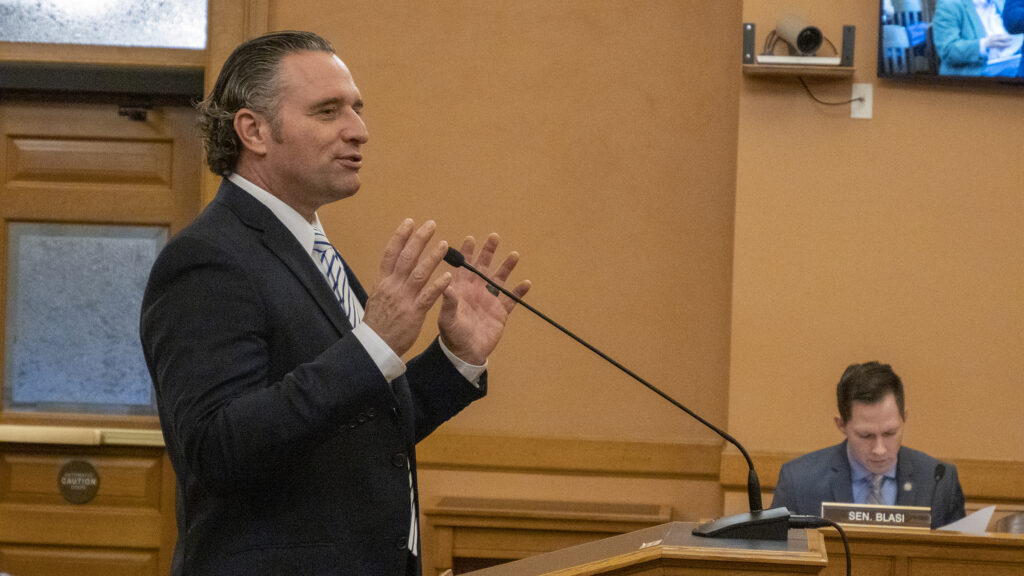
Kansas Senate implement a flat income tax for all taxpayers. (Photo: Kansas Reflector)
The Kansas Senate voted Thursday to implement a flat income tax for all taxpayers and to eliminate all state and local sales taxes on food the following year.
The 4.75% flat income tax was approved by a vote of 22-17, and a vote of 22-16 repealed the food sales tax.
Since the start of the legislative session, Kansas Senate President Ty Masterson, an Andover Republican, has prioritized the flat income tax proposal. He had initially proposed raising the sales tax on unhealthy foods to compensate for lost revenue from the flat tax.
However, senators voted on the Senate floor to amend his bill to eliminate the sales tax on all food.
Before the debate, Masterson stated that if the amendment passed, it would not jeopardize the state’s ability to transition to a flat tax but would alter the final policy.
READ ALSO: Saver’s Credit: Taxpayers Can Receive Up to $2,000 Credit
Last year, Democratic Gov. Laura Kelly campaigned to repeal the food sales tax immediately. In a press conference on Thursday, she criticized Masterson’s original plan to raise taxes on unhealthy foods. She claimed that the flat tax mirrored tax decisions made by former Republican Gov. Sam Brownback, whom she has repeatedly chastised.
The two major tax packages were announced alongside a slew of other tax policies, including tax breaks for crisis pregnancy centers and private school scholarships and the elimination of the income tax on retirement benefits.
The flat income tax proposal would levy all Kansans a 4.75% income tax. All income under $5,225 for individuals and $10,450 for married couples would be exempt from taxation. The Kansas Department of Revenue estimates that the flat income tax bill will reduce state revenues by around $570 million per year once fully implemented.
The bill’s supporters have argued that it will simplify Kansas’ tax code while providing tax relief to all Kansans. They argue that the move will help the state’s economy grow in the long run.
However, the flat income tax bill would benefit high-income Kansans far more than low-income Kansans.
According to the Kansas Department of Revenue, the lowest income earners in Kansas would save about $42 per year in taxes, while the highest income earners would save more than $5,000. According to the department, the average Kansas taxpayer would save $338 per year.
READ ALSO: Hunger Cliff Looms: 32 States to Cut Food-Stamp Benefits



















